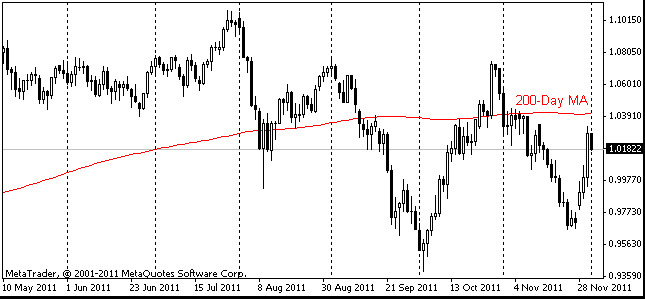EUR/usd
Markets cracked under their own weight and after an impressive rally on Monday launched a deep correction. Formally, the sales were triggered by a dramatic deterioration of the consumer confidence, recorded by Conference Board. In March the figure made 70.2 against 71.6 a month earlier. Besides, the worsening was mainly caused by ongoing concerns of the Americans about the employment situation in the country. Remember that just a few days ago everyone saw only positive changes in this sector and drew the parallel with the figures at the start of recession? Of course, the labour market issue may pale into significance this week, but next week it will again fully absorb investors' attention as new data on employment are scheduled to be released then. Meanwhile, current movements in the market impress by their diversity. The unison we observed earlier in the phase “risk on/off” is missing. EUR/USD has been hovering around 1,33 for three days in a row. Many of the coming signals are discrepant. WTI oil hasn't seen any significant motion and trend in March. The stock markets are climbing up, though it's often the case that they stumble on their way. For all that, the US growth rate remains higher than in any other countries, which is actually not surprising. In this connection we really wonder if improvement in the USA necessarily leads to the higher demand for such risky assets as the euro, aussie and commodities.

GBP/USD
The British pound reached the 1.60 level yesterday, but the cautiousness, dominating the markets at the time, didn't allow for setting of positive sentiments. The sterling rolled back a bit and is now trading around 1,5950. The final GDP figures for 4Q, published today, have been unexpectedly revised down to -0.3%. However, a batch of relatively positive data on manufacture and retail sales gives confidence that Britain will manage to escape the technical recession without the reduction in 1Q of the current year. Besides, statistics show that the current account is on the mend (the deficit of £8.5 bln in 4Q against £10.5 bln in 3Q) due to the increasing surplus in the capital inflow. It should tell favourably on the positions of the British currency. Moreover, if this money goes outside the City of London, it may even support production.

USD/JPY
USD/JPY loosened the correlation with the stock indices for a time, but now it seems to regain this dependence. For the most part of the day yesterday the yen was declining on strengthening of the world's stock exchanges, but with the beginning of correction in the USA and Asia it again found buyers. It's of interest that in February and March the fluctuations of the yen stayed almost unaffected by the capital repatriation. The currency has gone quite easily through these months, declining against most of its main rivals. And even occupying quite high levels now (above 83), it attracts less buying interest than it could. Probably, Japanese investors (who have large cash reserves) have finally turned their eyes to the country's debt burden and the difficulty with which it can be handled and is handled by Greece whose debt to GDP makes 130% against 215% expected in Japan this year. It's frightful to think of what will happen if markets stop buying the Japanese debts.

AUD/USD
It seems that we were mistaken when hurried to report the bulls' victory in the Aussie yesterday. Above 1,0550 AUD/USD met heavy sales, which continue even now. The currency pair have already fallen down to 1,0420. And if in the rest of markets the opposition of bulls and bears is not very strong (to be more exact, they prefer to stand aloof), here we can observe the real battle, the battle between those, who believe in the economic stability of Australia, and those, who bet that it will all come to an end due to the hard lending of China.
